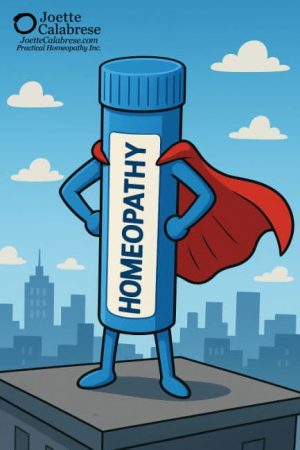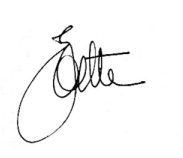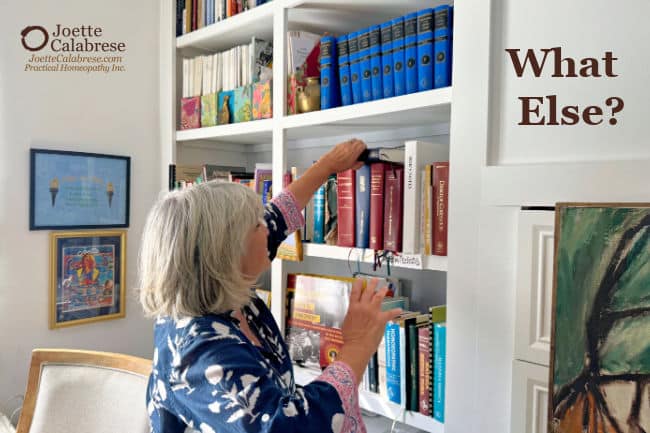No doubt, as you have become more accustomed to the advantages of time-tested homeopathic medicines, you have discovered the sweeping ability of homeopathy.
For instance, Arnica can be good for soft tissue injuries, pain, sleep, jet lag, head injury, blood disorders, angina, influenza, eczema and a long list of conditions that I presented in my blog post, When in Doubt: Arnica!
I was recently teaching a group about when and how to assess a sufferer’s condition after having utilized homeopathic medicine. I was discussing the three Magic Markers we watch for after starting a homeopathic medicine regimen. (If you’re not familiar with the Magic Markers, please read What to Expect When Using Homeopathy: Part 2.)
This is case management, my friends, and it’s one of the most challenging aspects for new users to learn.
Part of the problem is that I have said — and not only I but others have also said — “Yeah, we used this particular medicine and look at that! Look how fast that acted!”
That's true for certain kinds of conditions, especially acute ones. However, even though some acutes resolve quickly, don't make that your expectation for every condition.
It’s All About Assessment.
If we’re talking about arthritis, we’re likely going to see a change in a couple of weeks. Even irritable bowel may resolve pretty quickly. But ulcerative colitis? That could take some time.
Eczema sometimes clears up quickly, while at other times it may take six to eight weeks before a noticeable change is observed.
Consequently, the careful reader of my blog may see different recommendations for a reassessment.
In the case of most chronic conditions, I generally recommend reassessing at six to eight weeks. For moderately acute conditions, we may need to look sooner. Therefore, we’ll shorten up that reassessment timing to perhaps two to three weeks.
However, in a severe acute condition, such as an ear infection in a child, we don't expect to wait six to eight weeks to assess. We’re not even waiting two weeks. No, we're assessing it that night or the next day. Therefore, assessments are typically conducted sooner for most acute conditions.
Unfortunately, some of my newer readers read a story of a condition resolving with one dose of homeopathic medicine, and they extrapolate that to mean all medicines should work almost immediately.
Worse yet, they hear me say, “Assess it in about six to eight weeks,” regarding one condition, and they think that applies to every condition.
Unfortunately, they then think that if their condition has not fully resolved in six to eight weeks, they’re done. It must’ve been the wrong remedy.
But that's not so. When we assess, we examine everything.
What Else?
We are looking for improvement, not necessarily full resolution, to confirm that we are on the right track. We’re looking for improvement even in satellite conditions, not just in the main complaint.
For instance, one appropriate medicine may or may not have significantly helped the condition that we were targeting. Still, it might have helped in other ways, as observed by the softening of the satellite conditions.
Let’s say the sufferer’s sleep improves, their behavior is better, and their digestive system is less uncomfortable — even though we weren't specifically targeting those symptoms.
As we assess, if we notice an improvement in those kinds of things, we consult our materia medica to read up on the totality of what else that particular medicine, which we are using for the primary complaint, can address. If, in this case, sleep, behavior and gut health are also listed as being covered by that medicine, then the medicine is working! And I must add that if there is improvement in these other areas that are not even addressed by the medicine at hand, that too has the potential to indicate that we're on the right track. It would behoove us to stay on course.
We're always looking for what else this medicine could have done. What else is improved? What else?
We shouldn’t say, “But I still have frequent bowel movements!” Instead, we must note that there is no more blood in the stool, and the nausea has subsided. Yes, we may still have the frequent bowel movements — for now — but let’s not get hung up on that. There has been improvement surrounding the condition — around the edges of the main complaint, as it were.

The Sweeping Ability of Homeopathy
My friends, the only way we can accurately assess our conditions over time is to understand the medicine’s full capability, and to do that, you have to read a materia medica … or two … or even three to flesh out our understanding.
Indeed, many of these medicines have comprehensive abilities, as I mentioned with Arnica at the beginning of this post. Even so, I've heard people ask, “How can one medicine do so many things? How can one remedy do all that?”
I suppose I might've asked the same question years ago, but now it seems foreign to my thinking. That’s because I scour the materia medica. I know what's in there. I am aware of the vast capabilities of these medicines. Homeopathically prepared plants, minerals and animal products are capable of much more than a synthetic pharmaceutical would ever be.
Keys to Proper Assessment
So, remember to manage — and adjust — your expectations. Homeopathy is not necessarily going to act immediately or even overnight. (Sometimes, it may, but that should not be our general expectation.)
Remember to assess the condition after giving the medicine its due time. (Sometimes, that may be daily, as in the case of the severe acute ear infection. Sometimes, that may be in two to three weeks, as in a moderate acute condition. However, assessment might need to occur in six to eight weeks for a chronic condition.)
Pay attention to the three Magic Markers:
- Symptoms are now appearing with less intensity.
- Shorter duration of the hallmark events of the condition.
- Longer periods between
Then, reassess by looking at what symptoms and conditions remain — even satellite conditions. If there's been an improvement, consider to what extent it has improved. According to our findings, we either halt the medicine (because its job is done), carry on because there's still plenty more work to be completed, or pivot to another well-chosen medicine if we see no improvement in any area.
By the way, if we halt the medicine and the condition returns, we can always resume using the medicine that worked for a few weeks more, while continuing to observe.
Stay Curious
Clear as mud? Well, let me tell you, case management can be tricky for the uninitiated. This is why I encourage taking a deeper dive into the homeopathic topics most affecting your family, such as my condition-specific courses found in Joette’s Learning Center.
Better yet, discover homeopathy’s sweeping abilities by enrolling in The Academy of Practical Homeopathy®. Students learn from these very same protocol courses, plus instruction in human pathophysiology, a study of The Organon by Dr. Samuel Hahnemann, interviews with world-renowned figures in homeopathy, and much more — a year’s worth of valuable lessons and live meetings with me.
If you apply now for the next graduating class, you’ll be treated to my special upcoming student Engagement Center and begin learning even before The Academy classes start.
The more you know, the more you’ll be able to competently pass on the good news of Practical Homeopathy®!
Warmly,





Thank you so much for all the time, energy, etc, that you put in to help others. Very much appreciated.
Thanks for your kind words, Terri.